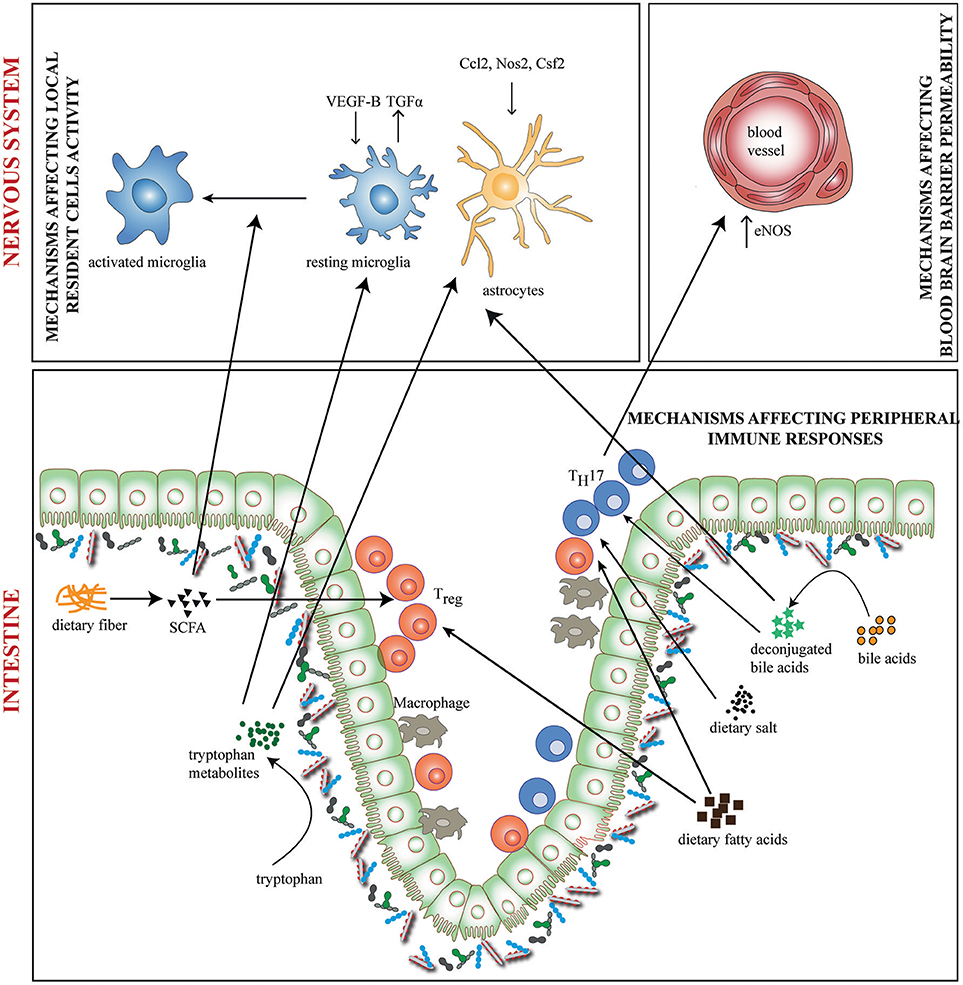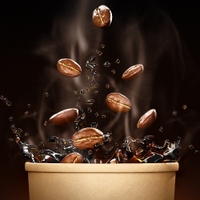| 1 | Spangenberg EE, Green KN. Inflammation in Alzheimer’s disease: Lessons learned from microglia-depletion models. Brain, Behavior, and Immunity. 2017 Mar;61:1–11. |
| 2 | Wu Z, Yu J, Zhu A, Nakanishi H. Nutrients, Microglia Aging, and Brain Aging. Oxid Med Cell Longev. 2016;2016. |
| 3 | Dominguez LJ, Barbagallo M. The relevance of nutrition for the concept of cognitive frailty: Current Opinion in Clinical Nutrition and Metabolic Care. 2017 Jan;20(1):61–8. |
| 4 | Thelin EP, Tajsic T, Zeiler FA, Menon DK, Hutchinson PJA, Carpenter KLH, et al. Monitoring the Neuroinflammatory Response Following Acute Brain Injury. Front Neurol. 2017 Jul 20;8. |
| 5 | Tohidpour A, Morgun AV, Boitsova EB, Malinovskaya NA, Martynova GP, Khilazheva ED, et al. Neuroinflammation and Infection: Molecular Mechanisms Associated with Dysfunction of Neurovascular Unit. Front Cell Infect Microbiol. 2017 Jun 20;7. |
| 6 | Shabab T, Khanabdali R, Moghadamtousi SZ, Kadir HA, Mohan G. Neuroinflammation pathways: a general review. International Journal of Neuroscience. 2017 Jul 3;127(7):624–33. |
| 7 | Barron H, Hafizi S, Andreazza AC, Mizrahi R. Neuroinflammation and Oxidative Stress in Psychosis and Psychosis Risk. Int J Mol Sci. 2017 Mar 17;18(3). |
| 8 | Estes A, Zwaigenbaum L, Gu H, John T, Paterson S, Elison JT, et al. Behavioral, cognitive, and adaptive development in infants with autism spectrum disorder in the first 2 years of life. Journal of Neurodevelopmental Disorders. 2015 Dec;7(1):24. |
| 9 | Gumpricht E, Rockway S. Can ω-3 fatty acids and tocotrienol-rich vitamin E reduce symptoms of neurodevelopmental disorders? Nutrition. 2014 Jul;30(7–8):733–8. |
| 10 | Lyman M, Lloyd DG, Ji X, Vizcaychipi MP, Ma D. Neuroinflammation: The role and consequences. Neuroscience Research. 2014 Feb;79:1–12. |
| 11 | Madore C, Leyrolle Q, Lacabanne C, Benmamar-Badel A, Joffre C, Nadjar A, et al. Neuroinflammation in Autism: Plausible Role of Maternal Inflammation, Dietary Omega 3, and Microbiota. Neural Plast. 2016;2016. |
| 12 | Orchard TS, Gaudier-Diaz MM, Weinhold KR, DeVries AC. Clearing the fog: a review of the effects of dietary omega-3 fatty acids and added sugars on chemotherapy-induced cognitive deficits. Breast Cancer Res Treat. 2017 Feb;161(3):391–8. |
| 13 | Radtke FA, Chapman G, Hall J, Syed YA. Modulating Neuroinflammation to Treat Neuropsychiatric Disorders. Biomed Res Int. 2017;2017. |
| 14 | Schain M, Kreisl WC. Neuroinflammation in Neurodegenerative Disorders—a Review. Current Neurology and Neuroscience Reports. 2017 Mar;17(3). |
| 15 | Louveau A, Smirnov I, Keyes TJ, Eccles JD, Rouhani SJ, Peske JD, et al. Structural and functional features of central nervous system lymphatics. Nature. 2015 Jul 16;523(7560):337–41. |
| 16 | Miller MG, Thangthaeng N, Poulose SM, Shukitt-Hale B. Role of fruits, nuts, and vegetables in maintaining cognitive health. Experimental Gerontology. 2017 Aug;94:24–8. |
| 17 | Janssen CIF, Kiliaan AJ. Long-chain polyunsaturated fatty acids (LCPUFA) from genesis to senescence: The influence of LCPUFA on neural development, aging, and neurodegeneration. Progress in Lipid Research. 2014 Jan;53:1–17. |
| 18 | Bazinet RP, Layé S. Polyunsaturated fatty acids and their metabolites in brain function and disease. Nature Reviews Neuroscience. 2014 Dec;15(12):771–85. |
| 19 | Devassy JG, Leng S, Gabbs M, Monirujjaman M, Aukema HM. Omega-3 Polyunsaturated Fatty Acids and Oxylipins in Neuroinflammation and Management of Alzheimer Disease12. Adv Nutr. 2016 Sep 7;7(5):905–16. |
| 20 | Weiser MJ, Butt CM, Mohajeri MH. Docosahexaenoic Acid and Cognition throughout the Lifespan. Nutrients. 2016 Feb 17;8(2). |
| 21 | Layé S, Nadjar A, Joffre C, Bazinet RP. Anti-Inflammatory Effects of Omega-3 Fatty Acids in the Brain: Physiological Mechanisms and Relevance to Pharmacology. Dantzer R, editor. Pharmacological Reviews. 2018 Jan;70(1):12–38. |
| 22 | Joffre C, Dinel A-L, Chataigner M, Pallet V, Layé S. n-3 Polyunsaturated Fatty Acids and Their Derivates Reduce Neuroinflammation during Aging. Nutrients. 2020 Feb 28;12(3). |
| 23 | Knight A, Bryan J, Murphy K. Is the Mediterranean diet a feasible approach to preserving cognitive function and reducing risk of dementia for older adults in Western countries? New insights and future directions. Ageing Research Reviews. 2016 Jan;25:85–101. |
| 24 | Rangarajan P, Karthikeyan A, Dheen ST. Role of dietary phenols in mitigating microglia-mediated neuroinflammation. NeuroMolecular Medicine. 2016 Sep;18(3):453–64. |
| 25 | Monacelli F, Acquarone E, Giannotti C, Borghi R, Nencioni A. Vitamin C, Aging and Alzheimer’s Disease. Nutrients. 2017 Jun 27;9(7). |
| 26 | Almeida S, Alves MG, Sousa M, Oliveira PF, Silva BM. Are Polyphenols Strong Dietary Agents Against Neurotoxicity and Neurodegeneration? Neurotoxicity Research. 2016 Oct;30(3):345–66. |
| 27 | Moussa C, Hebron M, Huang X, Ahn J, Rissman RA, Aisen PS, et al. Resveratrol regulates neuro-inflammation and induces adaptive immunity in Alzheimer’s disease. Journal of Neuroinflammation. 2017 Dec;14(1). |
| 28 | Zhao HF, Li N, Wang Q, Cheng XJ, Li XM, Liu TT. Resveratrol decreases the insoluble Aβ1–42 level in hippocampus and protects the integrity of the blood–brain barrier in AD rats. Neuroscience. 2015 Dec;310:641–9. |
| 29 | Mohammadzadeh Honarvar N, Saedisomeolia A, Abdolahi M, Shayeganrad A, Taheri Sangsari G, Hassanzadeh Rad B, et al. Molecular Anti-inflammatory Mechanisms of Retinoids and Carotenoids in Alzheimer’s Disease: a Review of Current Evidence. Journal of Molecular Neuroscience. 2017 Mar;61(3):289–304. |
| 30 | Sodhi RK, Singh N. Retinoids as potential targets for Alzheimer’s disease. Pharmacology Biochemistry and Behavior. 2014 May;120:117–23. |
| 31 | Kita T, Asanuma M, Miyazaki I, Takeshima M. Protective Effects of Phytochemical Antioxidants Against Neurotoxin-Induced Degeneration of Dopaminergic Neurons. Journal of Pharmacological Sciences. 2014;124(3):313–9. |
| 32 | Johnson RW. Feeding the beast: Can microglia in the senescent brain be regulated by diet? Brain Behav Immun. 2015 Jan;0:1–8. |
| 33 | Venigalla M, Sonego S, Gyengesi E, Sharman MJ, Münch G. Novel promising therapeutics against chronic neuroinflammation and neurodegeneration in Alzheimer’s disease. Neurochemistry International. 2016 May;95:63–74. |
| 34 | Sokolov AN, Pavlova MA, Klosterhalfen S, Enck P. Chocolate and the brain: Neurobiological impact of cocoa flavanols on cognition and behavior. Neuroscience & Biobehavioral Reviews. 2013 Dec;37(10):2445–53. |
| 35 | Khalatbary AR. Olive oil phenols and neuroprotection. Nutritional Neuroscience. 2013 Nov;16(6):243–9. |
| 36 | Piroddi M, Albini A, Fabiani R, Giovannelli L, Luceri C, Natella F, et al. Nutrigenomics of extra-virgin olive oil: A review: Nutrigenomics of extra-virgin olive oil. BioFactors. 2017 Jan 2;43(1):17–41. |
| 37 | Nuttall JR, Oteiza PI. Zinc and the aging brain. Genes & Nutrition. 2014 Jan;9(1). |
| 38 | Xia W, Mo H. Potential of tocotrienols in the prevention and therapy of Alzheimer’s disease. The Journal of Nutritional Biochemistry. 2016 May;31:1–9. |
| 39 | Chen H, Liu S, Ji L, Wu T, Ji Y, Zhou Y, et al. Folic Acid Supplementation Mitigates Alzheimer’s Disease by Reducing Inflammation: A Randomized Controlled Trial. Mediators of Inflammation. 2016;2016:1–10. |
| 40 | Mendiola-Precoma J, Berumen LC, Padilla K, Garcia-Alcocer G. Therapies for Prevention and Treatment of Alzheimer’s Disease. Biomed Res Int. 2016;2016. |
| 41 | Offermanns S, Schwaninger M. Nutritional or pharmacological activation of HCA2 ameliorates neuroinflammation. Trends in Molecular Medicine. 2015 Apr;21(4):245–55. |
| 42 | Morris G, Maes M, Berk M, Carvalho AF, Puri BK. Nutritional ketosis as an intervention to relieve astrogliosis: Possible therapeutic applications in the treatment of neurodegenerative and neuroprogressive disorders. Eur Psychiatry. 2020 Jan 31;63(1):e8. |
| 43 | Morris MC, Tangney CC, Wang Y, Sacks FM, Barnes LL, Bennett DA, et al. MIND diet slows cognitive decline with aging. Alzheimer’s & Dementia. 2015 Sep;11(9):1015–22. |
| 44 | Pistollato F, Iglesias RC, Ruiz R, Aparicio S, Crespo J, Lopez LD, et al. Nutritional patterns associated with the maintenance of neurocognitive functions and the risk of dementia and Alzheimer’s disease: A focus on human studies. Pharmacological Research. 2018 May;131:32–43. |
| 45 | Liu D, Ke Z, Luo J. Thiamine Deficiency and Neurodegeneration: the Interplay Among Oxidative Stress, Endoplasmic Reticulum Stress, and Autophagy. Molecular Neurobiology. 2017 Sep;54(7):5440–8. |
| 46 | Hammer A, Stegbauer J, Linker RA. Macrophages in neuroinflammation: role of the renin-angiotensin-system. Pflügers Archiv - European Journal of Physiology. 2017 Apr;469(3–4):431–44. |
| 47 | Dec K, Łukomska A, Maciejewska D, Jakubczyk K, Baranowska-Bosiacka I, Chlubek D, et al. The Influence of Fluorine on the Disturbances of Homeostasis in the Central Nervous System. Biol Trace Elem Res. 2017;177(2):224–34. |
| 48 | Leclercq S, de Timary P, Delzenne NM, Stärkel P. The link between inflammation, bugs, the intestine and the brain in alcohol dependence. Transl Psychiatry. 2017 Feb;7(2):e1048. |
| 49 | Ratter JM, Rooijackers HMM, Tack CJ, Hijmans AGM, Netea MG, de Galan BE, et al. Proinflammatory Effects of Hypoglycemia in Humans With or Without Diabetes. Diabetes. 2017 Apr;66(4):1052–61. |
| 50 | Zhao F, Deng J, Xu X, Cao F, Lu K, Li D, et al. Aquaporin-4 deletion ameliorates hypoglycemia-induced BBB permeability by inhibiting inflammatory responses. Journal of Neuroinflammation. 2018 Dec;15(1). |
| 51 | Farooqui AA. Inflammation and Oxidative Stress in Neurological Disorders: Effect of Lifestyle, Genes, and Age. Springer Science & Business Media; 2014. |
| 52 | Ozawa M, Shipley M, Kivimaki M, Singh-Manoux A, Brunner EJ. Dietary pattern, inflammation and cognitive decline: The Whitehall II prospective cohort study. Clinical Nutrition. 2017 Apr;36(2):506–12. |
| 53 | Leo E, Campos M. Effect of ultra-processed diet on gut microbiota and thus its role in neurodegenerative diseases. Nutrition. 2020 Mar;71:110609. |
| 54 | Maric T, Woodside B, Luheshi GN. The effects of dietary saturated fat on basal hypothalamic neuroinflammation in rats. Brain, Behavior, and Immunity. 2014 Feb;36:35–45. |
| 55 | Dragano NRV, Haddad-Tovolli R, Velloso LA. Leptin, Neuroinflammation and Obesity. In: Savino W, Guaraldi F, editors. Frontiers of Hormone Research. S. Karger AG; 2017. p. 84–96. |
| 56 | Maldonado-Ruiz R, Fuentes-Mera L, Camacho A. Central Modulation of Neuroinflammation by Neuropeptides and Energy-Sensing Hormones during Obesity. Biomed Res Int. 2017;2017. |
| 57 | Daulatzai MA. Obesity and Gut’s Dysbiosis Promote Neuroinflammation, Cognitive Impairment, and Vulnerability to Alzheimer’s disease: New Directions and Therapeutic Implications. Journal of Molecular and Genetic Medicine. 2014;s1(01). |
| 58 | Guillemot-Legris O, Muccioli GG. Obesity-Induced Neuroinflammation: Beyond the Hypothalamus. Trends in Neurosciences. 2017 Apr;40(4):237–53. |
| 59 | Minter MR, Zhang C, Leone V, Ringus DL, Zhang X, Oyler-Castrillo P, et al. Antibiotic-induced perturbations in gut microbial diversity influences neuro-inflammation and amyloidosis in a murine model of Alzheimer’s disease. Scientific Reports. 2016 Sep;6(1). |
| 60 | Rea K, Dinan TG, Cryan JF. The microbiome: A key regulator of stress and neuroinflammation. Neurobiology of Stress. 2016 Oct;4:23–33. |
| 61 | Erny D, de Angelis ALH, Jaitin D, Wieghofer P, Staszewski O, David E, et al. Host microbiota constantly control maturation and function of microglia in the CNS. Nat Neurosci. 2015 Jul;18(7):965–77. |
| 62 | Westfall S, Lomis N, Kahouli I, Dia SY, Singh SP, Prakash S. Microbiome, probiotics and neurodegenerative diseases: deciphering the gut brain axis. Cellular and Molecular Life Sciences. 2017 Oct;74(20):3769–87. |
| 63 | Jiang C, Li G, Huang P, Liu Z, Zhao B. The Gut Microbiota and Alzheimer’s Disease. Journal of Alzheimer’s Disease. 2017 May 3;58(1):1–15. |
| 64 | Sandhu KV, Sherwin E, Schellekens H, Stanton C, Dinan TG, Cryan JF. Feeding the microbiota-gut-brain axis: diet, microbiome, and neuropsychiatry. Translational Research. 2017 Jan;179:223–44. |
| 65 | Guerriero F, Sgarlata C, Francis M, Maurizi N, Faragli A, Perna S, et al. Neuroinflammation, immune system and Alzheimer disease: searching for the missing link. Aging Clinical and Experimental Research. 2017 Oct;29(5):821–31. |
| 66 | Janakiraman M, Krishnamoorthy G. Emerging Role of Diet and Microbiota Interactions in Neuroinflammation. Front Immunol. 2018 Sep 11;9. |
| 67 | Danielski LG, Giustina AD, Goldim MP, Florentino D, Mathias K, Garbossa L, et al. Vitamin B6 Reduces Neurochemical and Long-Term Cognitive Alterations After Polymicrobial Sepsis: Involvement of the Kynurenine Pathway Modulation. Molecular Neurobiology. 2018 Jun;55(6):5255–68. |
| 68 | Gopinath K, Sudhandiran G. Naringin modulates oxidative stress and inflammation in 3-nitropropionic acid-induced neurodegeneration through the activation of nuclear factor-erythroid 2-related factor-2 signalling pathway. Neuroscience. 2012 Dec;227:134–43. |
| 69 | Mani S, Sekar S, Barathidasan R, Manivasagam T, Thenmozhi AJ, Sevanan M, et al. Naringenin Decreases α-Synuclein Expression and Neuroinflammation in MPTP-Induced Parkinson’s Disease Model in Mice. Neurotoxicity Research. 2018 Apr;33(3):656–70. |
| 70 | Wang P, Yu X, Guan P-P, Guo J-W, Wang Y, Zhang Y, et al. Magnesium ion influx reduces neuroinflammation in Aβ precursor protein/Presenilin 1 transgenic mice by suppressing the expression of interleukin-1β. Cell Mol Immunol. 2017 May;14(5):451–64. |
| 71 | Kurtys E, Eisel ULM, Verkuyl JM, Broersen LM, Dierckx RAJO, de Vries EFJ. The combination of vitamins and omega-3 fatty acids has an enhanced anti-inflammatory effect on microglia. Neurochemistry International. 2016 Oct;99:206–14. |
| 72 | Raha S, Lee HJ, Yumnam S, Hong GE, Venkatarame Gowda Saralamma V, Ha YL, et al. Vitamin D2 suppresses amyloid-β 25–35 induced microglial activation in BV2 cells by blocking the NF-κB inflammatory signaling pathway. Life Sciences. 2016 Sep;161:37–44. |
| 73 | Liu Z-J, Li Z-H, Liu L, Tang W-X, Wang Y, Dong M-R, et al. Curcumin Attenuates Beta-Amyloid-Induced Neuroinflammation via Activation of Peroxisome Proliferator-Activated Receptor-Gamma Function in a Rat Model of Alzheimer’s Disease. Frontiers in Pharmacology. 2016 Aug 19;7. |
| 74 | Sun Y, Yang T, Leak RK, Chen J, Zhang F. Preventive and protective roles of dietary Nrf2 activators against central nervous system diseases. CNS Neurol Disord Drug Targets. 2017;16(3):326–38. |
| 75 | Yu S, Wang X, He X, Wang Y, Gao S, Ren L, et al. Curcumin exerts anti-inflammatory and antioxidative properties in 1-methyl-4-phenylpyridinium ion (MPP+)-stimulated mesencephalic astrocytes by interference with TLR4 and downstream signaling pathway. Cell Stress Chaperones. 2016 Jul;21(4):697–705. |
| 76 | Zhu H, Bian C, Yuan J, Chu W, Xiang X, Chen F, et al. Curcumin attenuates acute inflammatory injury by inhibiting the TLR4/MyD88/NF-κB signaling pathway in experimental traumatic brain injury. J Neuroinflammation. 2014 Mar 27;11:59. |
| 77 | Rojanathammanee L, Puig KL, Combs CK. Pomegranate Polyphenols and Extract Inhibit Nuclear Factor of Activated T-Cell Activity and Microglial Activation In Vitro and in a Transgenic Mouse Model of Alzheimer Disease. The Journal of Nutrition. 2013 May 1;143(5):597–605. |
| 78 | Wang S, Zheng L, Zhao T, Zhang Q, Liu Y, Sun B, et al. Inhibitory Effects of Walnut (Juglans regia) Peptides on Neuroinflammation and Oxidative Stress in Lipopolysaccharide-Induced Cognitive Impairment Mice. J Agric Food Chem. 2020 Feb 26;68(8):2381–92. |
| 79 | Chauhan A, Chauhan V. Beneficial Effects of Walnuts on Cognition and Brain Health. Nutrients. 2020 Feb 20;12(2). |
| 80 | Pu H, Guo Y, Zhang W, Huang L, Wang G, Liou AK, et al. Omega-3 Polyunsaturated Fatty Acid Supplementation Improves Neurologic Recovery and Attenuates White Matter Injury after Experimental Traumatic Brain Injury. Journal of Cerebral Blood Flow & Metabolism. 2013 Sep;33(9):1474–84. |
| 81 | Talamonti E, Sasso V, To H, Haslam RP, Napier JA, Ulfhake B, et al. Impairment of DHA synthesis alters the expression of neuronal plasticity markers and the brain inflammatory status in mice. FASEB J. 2020 Feb;34(2):2024–40. |
| 82 | Jaeger BN, Parylak SL, Gage FH. Mechanisms of dietary flavonoid action in neuronal function and neuroinflammation. Molecular Aspects of Medicine. 2017 Nov. |
| 83 | Li J, Zhao R, Jiang Y, Xu Y, Zhao H, Lyu X, et al. Bilberry anthocyanins improve neuroinflammation and cognitive dysfunction in APP/PSEN1 mice via the CD33/TREM2/TYROBP signaling pathway in microglia. Food Funct. 2020 Feb 26;11(2):1572–84. |
| 84 | Micioni Di Bonaventura MV, Martinelli I, Moruzzi M, Micioni Di Bonaventura E, Giusepponi ME, Polidori C, et al. Brain alterations in high fat diet induced obesity: effects of tart cherry seeds and juice. Nutrients. 2020 27;12(3). |
| 85 | Basu Mallik S, Mudgal J, Nampoothiri M, Hall S, Dukie SA-, Grant G, et al. Caffeic acid attenuates lipopolysaccharide-induced sickness behaviour and neuroinflammation in mice. Neuroscience Letters. 2016 Oct;632:218–23. |
| 86 | Huang H, Hong Q, Tan H, Xiao C, Gao Y. Ferulic acid prevents LPS-induced up-regulation of PDE4B and stimulates the cAMP/CREB signaling pathway in PC12 cells. Acta Pharmacol Sin. 2016 Dec;37(12):1543–54. |
| 87 | Choi JY, Jang JS, Son DJ, Im H-S, Kim JY, Park JE, et al. Antarctic Krill Oil Diet Protects against Lipopolysaccharide-Induced Oxidative Stress, Neuroinflammation and Cognitive Impairment. Int J Mol Sci. 2017 Nov 28;18(12). |
| 88 | Tucsek Z, Toth P, Sosnowska D, Gautam T, Mitschelen M, Koller A, et al. Obesity in Aging Exacerbates Blood–Brain Barrier Disruption, Neuroinflammation, and Oxidative Stress in the Mouse Hippocampus: Effects on Expression of Genes Involved in Beta-Amyloid Generation and Alzheimer’s Disease. J Gerontol A Biol Sci Med Sci. 2014 Oct;69(10):1212–26. |
| 89 | Shi H, Wang Q, Zheng M, Hao S, Lum JS, Chen X, et al. Supplement of microbiota-accessible carbohydrates prevents neuroinflammation and cognitive decline by improving the gut microbiota-brain axis in diet-induced obese mice. J Neuroinflammation. 2020 Mar 4;17(1):77. |
| 90 | Gomes JAS, Silva JF, Marçal AP, Silva GC, Gomes GF, de Oliveira ACP, et al. High-refined carbohydrate diet consumption induces neuroinflammation and anxiety-like behavior in mice. J Nutr Biochem. 2020 Mar;77:108317. |

 and astrocytes
and astrocytes  .
. and/or activation after exposure to omega-3 PUFAs (21).
and/or activation after exposure to omega-3 PUFAs (21). resistance in obesity and in regulating body energy stores (55). It can impair insulin release from β cells, impair peripheral insulin action, and promote hypertension (57).
resistance in obesity and in regulating body energy stores (55). It can impair insulin release from β cells, impair peripheral insulin action, and promote hypertension (57).






